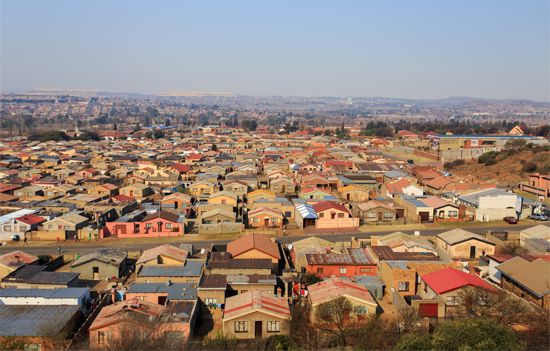The Soweto settlement of South Africa has been a symbol of persistence and neglect. Soweto is known to possess rich historical roots, cultural power, which is still characterized by the problems of poverty, ineffective infrastructure and the inactivity of the government. Even after decades of giving promises, lots of people continue living without access to basic needs like clean water, proper sanitation and safe houses. To a large number of Americans who read about the aspect of global inequality, the Soweto story is a significant reminder of the consequences when social growth is overtaken by urban growth.
A Settlement Born from History

The Soweto settlement is a community that started with the people of apartheid displacement. It has its geographic beginnings in the early 20th century as black South Africans were displaced in the central area of Johannesburg. Soweto gained strength as a resistance and identity centre over time. But with the conclusion of apartheid, people hoped that a new and improved life will be full of opportunity, dignity, and development. Regrettably, a lot of those expectations are not met.
Cases such as the Neighborhoods, including the Nomzamo Park, in Soweto are in a state of widespread poverty. Thousands of homes have few toilets and water taps. During the rainy season, the streets are unpaved and inundated with untreated water. People have to walk miles to get clean water, and most people have to use the open fields as temporary toilets. This fact demonstrates that the democracy in South Africa has already made progress, but its social and economic problems are yet to be resolved.
Living Conditions in Soweto Settlement
The Soweto settlement can be rough. A lot of houses are constructed using the scraps and corrugated iron. These unofficial shelters do not give much defense against rain or crime. Lack of electricity and sanitation forces families to resort to unsafe electricity connections and common public toilets which are not frequently maintained.
The unemployment rate is frequently high, up to 40-50%. There is a low employment rate; hence most citizens are sustaining themselves on small informal enterprises, like selling in the streets or operating a home business. Nevertheless regardless of their hard condition, the community members are resilient and have exceptional resilience and solidarity.
As an example, the community members tend to chip in when there is a need to fix broken water taps or conduct clean-up missions when the government has been silent. This is also a way of not giving up; one of the most encouraging stories about Soweto. It demonstrates the way individuals can unite to bring change even under the most difficult circumstances.
The Role of Government and Accountability
A large number of residents feel that political leaders have neglected their promises. Local and national authorities have over the years to this day paid a visit to Soweto, promising new housing projects, and improved infrastructure. But the majority of these plans are never even realised. Millions in taxpayer funds will go to waste on some of the housing projects that are not finished or even abandoned halfway.
This has created frustration and mistrust with the people due to the lack of accountability. People here tend to claim that they have lost hope and will never live to better their lives. Such type of negligence reflects the problems witnessed in the urban centers throughout the world including those sections of the United States with low-income communities unable to attract government attention and investment.
Community Voices and Their Demand for Change
Nevertheless, the inhabitants of the Soweto settlement keep insisting on their right to a dignified life despite the odds. They desire to have running water, toilets, electricity, and safe houses. Others also demand improved schools and job training courses among the younger generation, to enable them make their future stable rather than involve themselves into cycles of poverty and crime.
There has been an intervention by community organizations, activists and non-governmental organizations. There are those that are conducted in the form of educational workshops and others that offer small grants to the local entrepreneurs. Such attempts demonstrate that no matter how small, every action can result in significant change once people own their future.
Why the Soweto Settlement Story Matters Globally
The Soweto settlement story has lessons to the world at large. It is a reminder that people should not be left behind in the urban development process, since only the rich can develop cities. To the American readers, Soweto reminds them that lack of inequality and political complacency can leave generations behind unless the leaders are willing to give more attention to the social good.
It also highlights the issue of accountability and transparency in governance. When citizens are heard and the governments put their responsibilities in place, communities prosper. However, neglecting their citizens by them even makes the most promising societies fall.
A Call for a Brighter Tomorrow
The people in Soweto have been extraordinarily brave throughout decades. They still shout in favor of justice, equality and opportunity. Under a strong leadership drive, local tolerance, and international recognition, Soweto settlement can switch the battlefield into optimism and a beacon of life.
The story of Soweto must not be forgotten; it is an example of human strength and of a necessary change at the same time. Through its experience, societies all over the world can be brought one step closer on the path of ensuring that no society, regardless of its location, is left behind.



